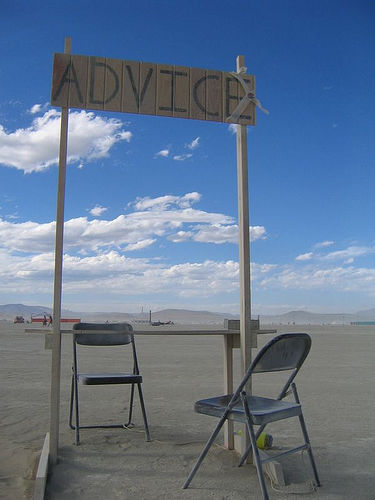
A few weeks ago, Deborah Walker wrote a blog post commenting on my Futurismic article “Critique, Mentors, Practice, and a Million Words of Garbage” in which she asked for (and got) readers’ thoughts on the importance of feedback for her writing. One of the commenters, Joe Romel, protested that “the difference between Tiger Woods and Phil Mickelson isn’t hours spent practicing, okay?”
I agree with Joe: it’s not just raw hours that count; it’s hours of deliberate practice (see “Practice versus Deliberate Practice“). In the Futurismic article, I talk about how Tiger Woods got his start in golf: his father, a professional golf coach, began training him before the age of 2. Tiger got in not only hours on the green, but crucially, tons of expert feedback. By contrast, Phil Mickelson started golf as a toddler too, but under the tutelage of his own father, Phil Mickelson Senior, of whom the best I’ve found said is that he “could play a little golf.” Both grew up and rose to the top of the golfing world, but Woods rose higher. More time on the green? Maybe, but Woods also had much more expert instruction from the beginning.
Compare this to Mozart’s and Salieri’s stories: Mozart was instructed from toddlerhood by his father, whose musical instruction was renowned across Europe; Salieri began learning music at a young age (though likely a few years later in life than Mozart) from his brother, who was a professional violinist but not especially experienced at teaching music or composition. Both rose to among the most well-known musicians of their time, but one vanished in obscurity until he was vilified in a movie about the other.
Applying this to writing, I think the point is not just to write a lot (which is certainly essential to becoming really good), but to get a lot of feedback of the best possible quality.
This relates directly to first readers and critique groups. As Joe says:
Anyway, I’ve done first readers and crit groups, and…well…meh. If you’re lucky enough to find a really good reader, whose opinion you trust and who will be completely honest with you, then great, but otherwise…well…meh. Same goes for critique groups.
Learning from readers who aren’t particularly in tune with what you’re trying to write or from writers who haven’t yet become very good themselves is not likely to be ideal, although it’s better than no feedback at all. It’s also essential to be actively interested in getting and using feedback. I admit, when I hand a story over for critique, what I’m really hoping for is that the reader will rush back to me, breathless and in tears, and insist that I recognize that the story is the best thing ever written in the history of the short story. Sadly, the result sometimes falls a little short of that-but at that point, if I’m going to learn anything, I have to switch from praise acceptance mode to self-examination mode.
My recommendations for feedback for writers are
- Find the best critique group you can,
- Send out work regularly to the publications or publishers you admire most in hopes of getting comments from editors even if you don’t sell the work,
- Discuss writing with people who know what they’re talking about (or find transcripts of such discussions), and
- Read books on writing by writers you respect.
This is more or less what I do myself, and so far so good, though I’m no Mozart or Tiger Woods (well, yet anyway).
Photo courtesy of NASA











